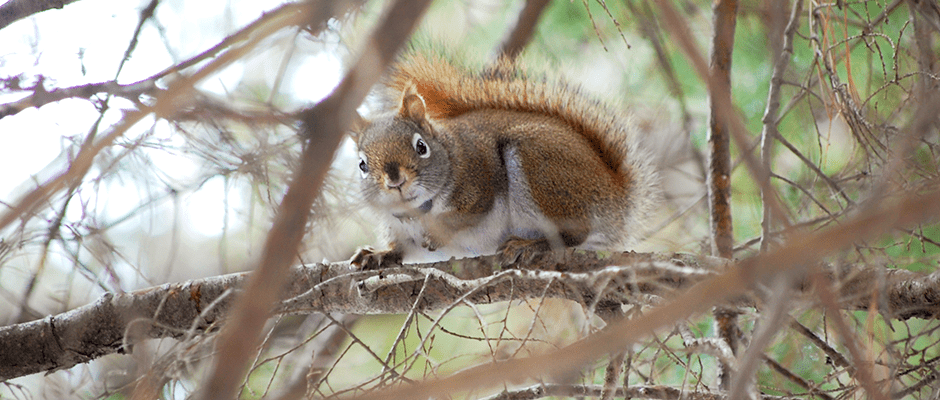Share this article
Student Research project: Drought lowers squirrel numbers
Over the course of one year, an American red squirrel (Tamiasciurus hudsonicus) population in Maine dropped significantly, likely a result of drought, according to new research presented at the TWS Annual Conference in Raleigh last October.
The research earned Unity College senior Jennifer Meineke honorable mention in the undergraduate category for the Student Research in Progress projects. “The American red squirrel is all over North America, and is well known,” Meineke said, “but they’re not well-studied in this area.”
As part of her study, Meineke used data collected as part of a project by previous students since fall 2014 to determine the species’ population density and home range size in a small study area in Unity, Maine.
Meineke and her colleagues fit the squirrels with radio collars and used radio telemetry to track them. She also used anecdotal evidence to determine the squirrels’ hoarding behaviors. Meineke determined some squirrels were practicing scatter hoarding — or collecting cones and storing them in various locations for later consumption — but she was surprised to find that some were practicing larder hoarding, where all of the cones are placed in one spot. “That’s more seen in the western United States,” she said.
Meineke also looked at population size and population density. After using distance sampling utilizing point transects, her data showed that in fall 2015 there were 79 squirrels in the study area while there were only 20 squirrels in the area in fall 2016. Meineke said this might be a result of drought. Further, although the research hasn’t yet been done, species such as fishers and coyotes that use squirrels as a food source might be affected as well, she said.
Her project was part of an ongoing Unity College Squirrel Study.
“I think it’s really cool,” she said. “Students can come in and use data already collected and start their own project on the population.”
Header Image: This adult male American red squirrel was one of the first squirrels tagged for the study. ©Jennifer Meineke








